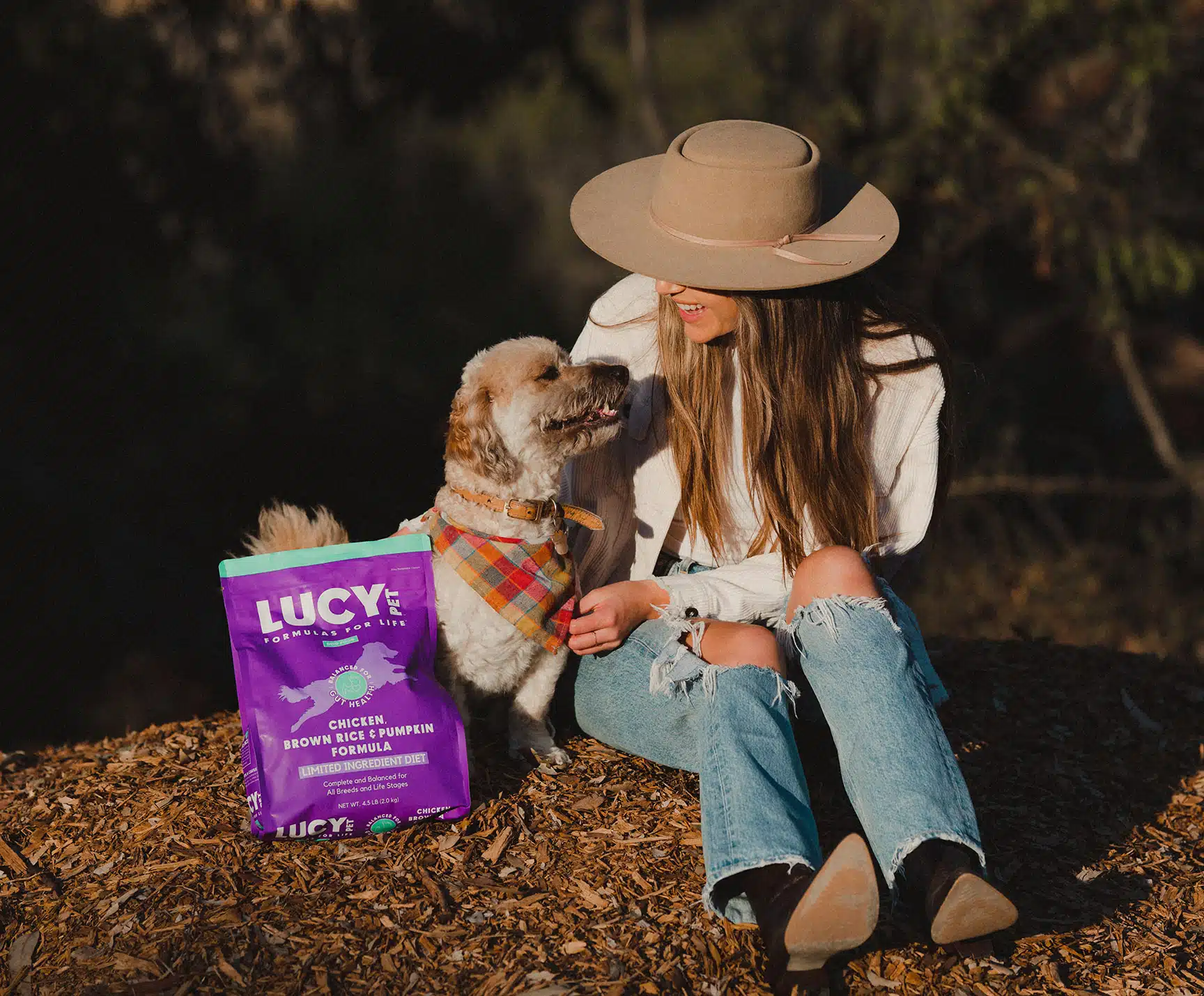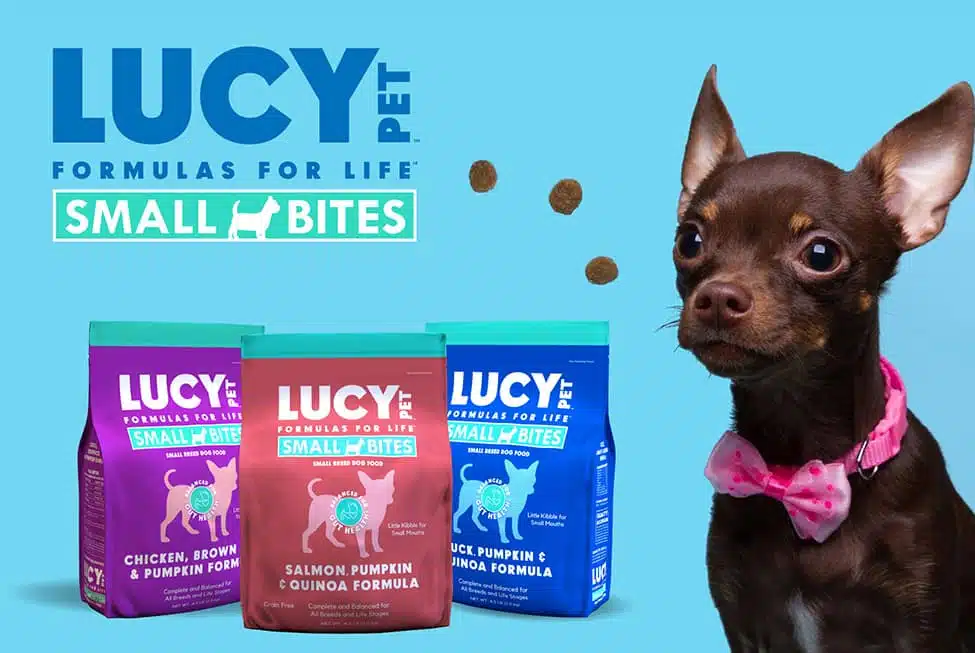
Your dog can become ill with an upset stomach for a multitude of reasons, and many of the causes have similar symptoms. While stomach issues certainly have the potential to be something as minor as your dog having an off day, it can also be an indication of a greater ailment to your dog’s health. Here are some of the most common canine health problems that produce a stomach ache, as well as what can I give my dog for an upset stomach.
Indigestion
Indigestion is precisely what it sounds like. Stemming from inflammation in the gastrointestinal tract, indigestion most commonly affects the stomach and intestines. Unlike other stomach issues, indigestion is always related to the consumption of food. As a result, the most common remedy for indigestion is the preventative measure of a well balanced daily diet. It is imperative to be aware of what your dog is eating, as a well-balanced diet formulated specifically for dogs will help prevent indigestion.
Indigestion includes symptoms that are related to acid reflux like heartburn and nausea but is not always as noticeable or severe. Because they cannot communicate with us, it can be quite challenging to diagnose indigestion in dogs. Typically indigestion will be characterized by gagging or vomiting, and if severe, could become diarrhea. Indigestion begins as inflammation in the stomach and intestines due to a surplus of stomach acid. The stomach acid, normally used to break down food, irritates the internal tissue of the digestive tract, thereby causing indigestion.
The Signs of Indigestion
Most of the time, indigestion is caused by a dog eating too much or too rapidly. These two common mistakes cause a surplus of stomach acid to fill the stomach rapidly. The rapid influx of stomach acid toxic to dogs causes the gastric system to become overwhelmed, and the body attempts to alleviate the pressure. The attempt to relieve this pressure is most commonly seen in symptoms of indigestion, i.e., regurgitation, gas pain, nausea, bloating, and diarrhea.
Helpful Remedies
As mentioned earlier, the best remedy for indigestion is to take a preventative approach with a balanced and well-maintained diet. However, when your dog is in the throws of indigestion, probiotics are an excellent remedy for indigestion in dogs.
Plain greek yogurt is one of the best dog-friendly sources of probiotics, and you can add some directly to your dog’s food. Probiotics help to introduce good bacteria to the gut and are an excellent immune stimulant that helps fight off viruses and other illnesses in the digestive tract. Plain pumpkin (canned) is also an excellent option to add to the dry food to help address this issue.
Additionally, probiotics are great for increasing brain function and raising energy levels, helping to combat symptoms of a stomach ache like lethargy. Probiotics can and should be taken by your dog daily. Look for dog food with probiotics in the recipe to ensure your dog is preventing indigestion daily!
Ulcers
The common denominator in all canine stomach issues is stomach acid. While this natural part of the digestive system is typically not a problem, the corrosive effects of stomach acid can be toxic to dogs that have detrimental effects.
Ulcers are the poster child for how stomach acid can negatively impact your dog’s digestive tract. Ulcers form over a period of time, whereby stomach acid erodes the lining of the stomach. Small holes and painful sores form along the inner lining of the stomach and only become worse as the stomach continues to be bombarded by stomach acid during the digestive process.
What are the symptoms?
The symptoms of Ulcers are very distinctive as this particular stomach issue involves the deterioration of internal tissue. Bloody vomit and hard dark stool are the two visible symptoms of ulcers in dogs that will more than likely get your attention. Bloody stool and dark vomit are not common, and signs of ulcers are not always visible.
Typically, your dog’s actions, like an unwillingness to eat, or whining while eating, will give you an indication of whether or not there is a severe medical problem. Be mindful of other symptoms of ulcers like unexplained weight loss, signs of fatigue and lethargy, and always seek veterinary help as soon as you think there is an issue.
How do I treat ulcers?
Treatment for ulcers almost always requires a course of antibiotics, and for the most part, painkillers will be administered as well. There are no at-home remedies for ulcers, so the quicker you get your dog to the Vet, the better. Treatment for ulcers usually takes anywhere between six and eight weeks, depending on the severity. In rare cases, ulcers cannot be fully healed. If this is the case with your dog, there are management plans that can help your dog cope with this stomach issue.
While your dog is healing, your Vet may recommend canned pumpkin, which is an excellent dietary aid in dog food for dogs with ulcers. Pumpkin is low-glycemic, meaning it has low sugar and will require less stomach acid to digest. This will ensure that eating does not aggravate the condition of the ulcer while still being a savory treat that your dog will be unable to resist.
Viruses and Parasites
Believe it or not, dogs are susceptible to stomach bugs the same way humans are! Viruses are one of the most common canine stomach ailments, but unlike other canine stomach issues, viruses have the propensity to become severe and dangerous.
Parasites are typically categorized with viruses, and while drastically different on a microbiological level, these unwanted guests set up camp in your dog’s intestinal tract. Both viruses and parasites can cause significant stomach ache and should be treated with immediate medical care.
How did my dog get a parasite or virus?
Contaminated fecal matter is the primary source for contracting parasites and viruses. Dogs are naturally attracted to that which we find repulsive. While casual exploration may not always result in a parasitic or viral infestation, it is best to keep your dog away from things like sewage, dead animals, or other animal scat. Viral and parasitic infestation is undoubtedly possible from other forms of exposure, but usually, a dog needs to ingest a contaminated substance orally through the dog’s mouth.
What do these parasites and viruses do?
One of the most common viruses found in dogs is also one of the most dangerous. Parvovirus is a problematic viral infection that attacks a healthy dog’s small intestine. Once the intestines are compromised, Parvovirus can enter the bloodstream where it attacks white blood cells, bone marrow, and the heart. Parvovirus is treatable, but more importantly, it is preventable, and all Vets require dogs to be vaccinated for Parvo.
Worms are the most common canine parasite. These pests live in the small intestines where they steal the nutrient-rich food that your dog’s body is attempting to absorb and digest. This ultimately starves your dog, depriving it of much-needed nutrients. As a result, worms very quickly lead to a stomach ache with visible symptoms like diarrhea, fever, and vomiting.
What do I look for?
This part is gross, but no one said being a dog owner would be easy. Your dog’s stool will be the ultimate indicator of what is happening internally. Parvovirus can be detected by bloody diarrhea, whereas worms will show up in pieces in your dog’s stool.
In both situations, antibiotics will be administered by your Vet until the viral or parasitic infestation has subsided. In the meantime, this stomach issue is contagious, and your dog should keep to himself.
Here are a few general tips for how to handle your dog’s upset stomach
- Identify the source of trouble. Did your dog eat anything they shouldn’t have? Has their demeanor changed? Does the pain seem severe?
- Monitor behavior and symptoms. Once you notice your dog acting out of the ordinary, it will be essential to start watching for symptoms.
- Take your dog for an exam. Waiting is never a good idea. As soon as your dog demonstrates that they are in distress, it is time to take them to the Vet.
- Develop and follow a treatment plan. Whether your dog’s upset stomach is mild or severe, there will be ways to treat the symptoms. Stick to the plan.
When it comes to treating your dog’s stomach issues, simple food tends to work best. Many vets recommend things like greek yogurt, pumpkin, or for a heartier meal boiled chicken and rice. Hydration is crucial when dealing with an upset stomach, and things like bone broth and diluted Pedialyte can be substituted for water to ensure your dog is receiving the electrolytes they need.
The best way to avoid stomach issues is to find a natural dog food like Lucy Pet that is precisely-formulated to aid in digestion and helps to prevent stomach problems from arising in the first place. The prebiotics in Lucy Pet’s food is actually food for the natural probiotics already in your pet’s gut. So when you feed Lucy Pet you help keep the population of good bacteria thriving. From flavor profile to recipe and nutritional value, your dog’s daily diet is a sure-fire way to ensure long term health and wellness. Preventative care is always better than reactive solutions, and a healthy diet is the best way to prevent an upset stomach.






Leave A Comment
You must be logged in to post a comment.